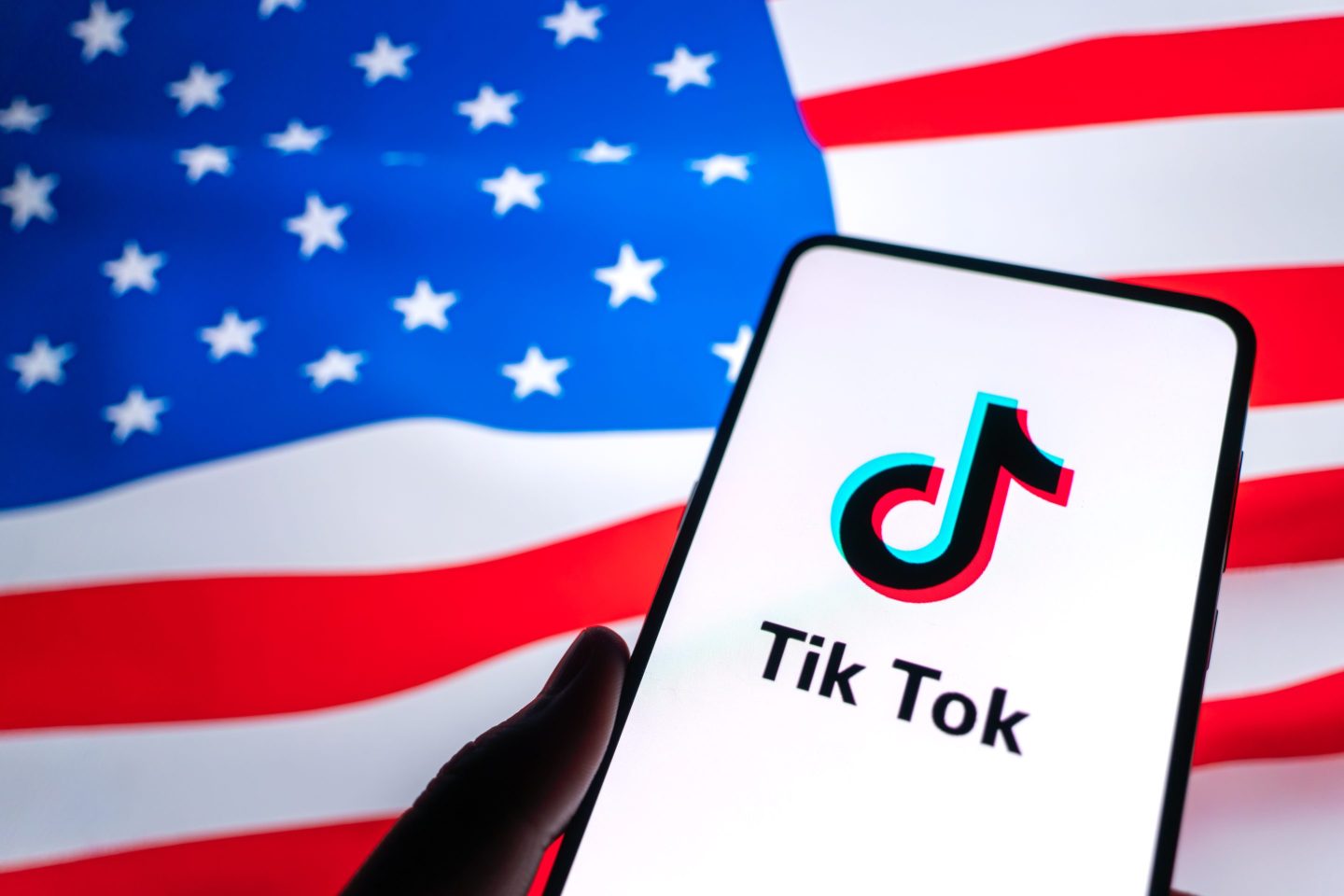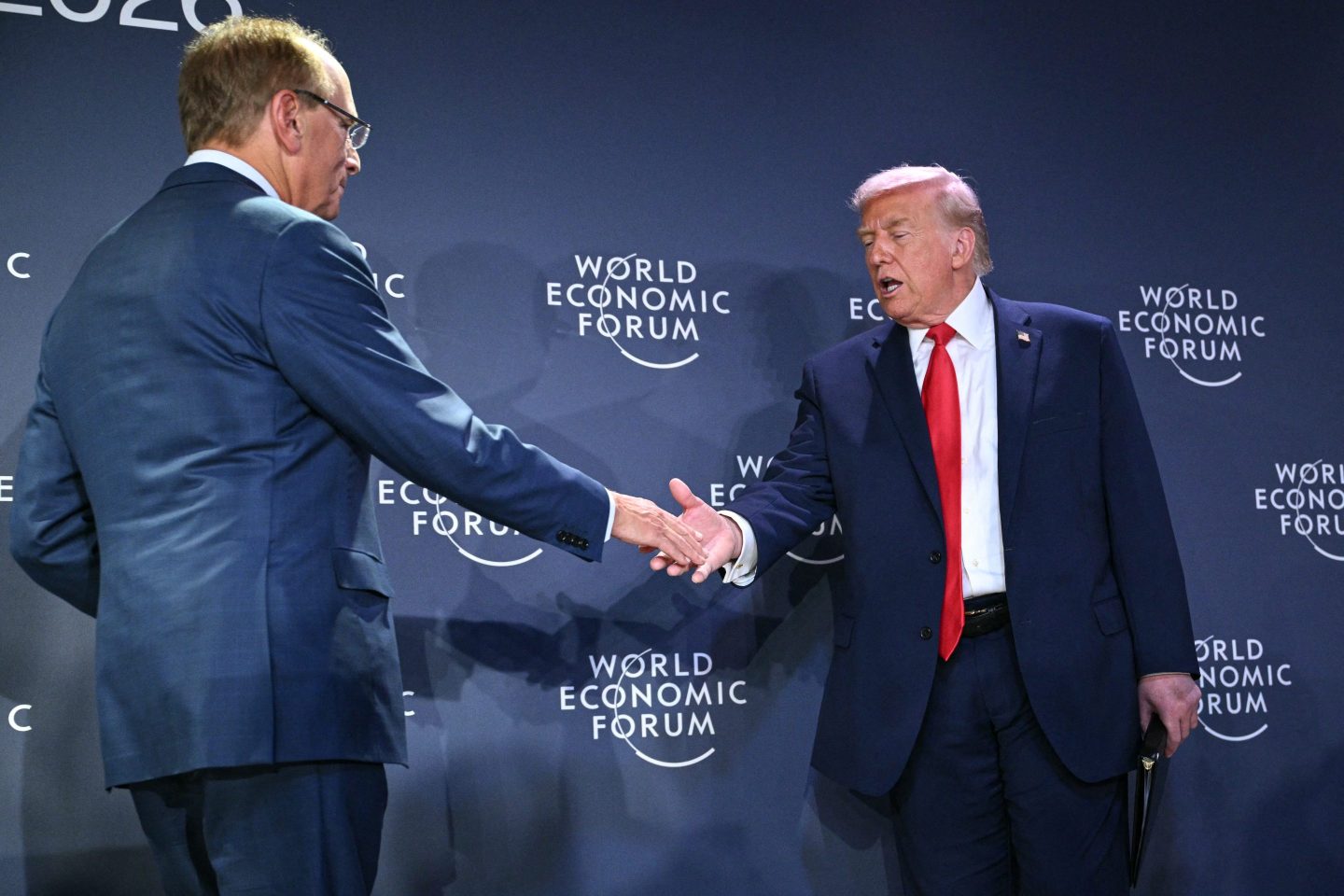Good morning. It’s hard not to feel a sense of deja vu in tech these days. Remember these classic moments:
April 2012: Google releases a video giving the world its first glimpse of Google Glass, a futuristic-looking pair of augmented reality glasses.
August 1997: Microsoft invests $150 million into Apple, extending a lifeline to the troubled Mac maker. “Bill, thank you. The world’s a better place,” Apple cofounder Steve Jobs told Bill Gates at the time.
Yes, we’re seeing these movies all over again today, whether it’s Nvidia investing in chip nemesis Intel, or Meta rolling out new smart glasses with a built-in display. Timing is everything in tech, of course, so the fact that Google Glass flopped spectacularly doesn’t mean the Meta glasses are doomed—or ensure that Intel will mount a legendary comeback, a la Apple.
But one lesson from the past is worth taking into account. Microsoft sold its entire stake in Apple six years later, netting a very respectable return. But when you consider that Apple’s $7.9 billion market cap the year Microsoft sold subsequently exploded to today’s $3.5 trillion, the sale looks dreadfully premature in hindsight. Jensen, if you’re listening…
Today’s tech news below. —Alexei Oreskovic
Want to send thoughts or suggestions to Coins2Day Tech? Drop a line here.
Meta's new smart glasses

Meta unveiled a new line up of smart-glasses at its Meta Connect conference this week, including an updated Ray‑Ban Meta Gen 2 with longer battery life ($379), a sport‑focused Oakley Meta Vanguard ($499), and the all new Ray‑Ban Display with a built‑in lens display, with a $799 sticker price.
The Ray‑Ban Display adds a see‑through lens readout and relies on a neural wristband for subtle gesture control, marking Meta’s first consumer smart glasses with a built‑in display.
Early hands‑on coverage has been notably upbeat for the Display glasses, with one reviewer from The Verge calling them the best smart glasses tried to date and another saying they “feel like the future,” while also noting they’re the product to beat for the category.
For all the enthusiasm, Wednesday’s grand unveiling of the Display glasses was marred by a live on‑stage demo that repeatedly failed, culminating in Mark Zuckerberg being unable to answer a video call via the new neural wristband while assuring the audience “it’s all good” amid Wi‑Fi excuses. —Ashley Lutz
Nvidia plows $5 billion into Intel
Nvidia, the world’s leader in artificial intelligence chips, announced it will invest $5 billion in Intel’s common stock at a discounted price of $23.28 per share. The news prompted a premarket surge in Intel shares of a whopping 30%, settling to a 22% gain by the end of Thursday's trading session.
Nvidia CEO Jensen Huang hailed the deal as a “historic collaboration” that will tightly couple Nvidia’s AI and accelerated computing stack with Intel’s central processing units (CPUs) and its x86 ecosystem. Specifically, Intel will build and bring to market x86 system-on-chips (SOCs) that integrate NVIDIA RTX GPU chiplets.
This move comes soon after a whirlwind of corporate and political drama involving Intel, America’s one-time semiconductor chips champion, that saw President Trump call for the resignation of CEO Lip-Bu Tan, his sudden reversal, and then the U.S. Government itself making an unprecedented investment into Intel, taking a nearly 10% stake in the process.
Jefferies analyst William Beavington wrote in response to Thursday's Nvidia news that “Operation Save Intel is well underway … can’t help but wonder if the gov’t had any hand in this …” He also noted that the deal terms represent a 6.5% discount to Intel’s last close, which is slightly more expensive than the $20.47 per share that the U.S. Government paid for its $10 billion stake in Intel, but similar to the $23-per-share, $2 billion deal that Intel struck with Softbank in August. —Nick Lichtenberg
The VC leading DOGE 2.0
Can Scott Kupor succeed where Elon Musk flailed?
In July, the former managing partner of venture capital powerhouse Andreessen Horowitz was sworn in as director of the U.S. Office of Personnel Management (OPM).
Though not historically a very exciting or newsworthy White House agency, the OPM has been at the forefront of one of the largest-scale federal labor cost-cutting efforts in modern U.S. History. After all, OPM played a central role in Elon Musk's mission to have DOGE slash the U.S. Government’s multi-trillion-dollar deficit and terminate tens of thousands of federal workers.
As "a coalesced, centralized organization," DOGE doesn't exist anymore, says Kupor, but he says OPM is part of the “institutionalization” of the efforts Musk’s org started. And that means more cuts, with Kupor planning for the federal workforce to be 300,000 roles lighter by the end of the year.
But while Musk gleefully jumped around swinging a chainsaw on stage, Kupor talks of rebuilding trust and treating workers with respect. By avoiding the backlash and chaos Musk fomented, can the 53-year-old VC show that a smaller government can be more efficient? Or will he prove to simply be nicer packaging for a bad policy?
Read Jessica Mathews' profile of Scott Kupor here. —AO, JM
More tech
—Disney gets boycott threats after Kimmel suspension. ‘Let’s do to Disney what we did to Target’
—Huawei's new AI chips. Here comes the superclusters.
—Larry Ellison's reign as the world's richest person is already over. Easy come, easy go.
—Ramp CEO's first calls for business advice. Hello Fidji, Hello Satya?
—First Dogecoin ETF launches. You can thank the SEC's new crypto rules.
—Big Tech’s standard for fighting AI fakes puts privacy on the line. More than meets the eye.












